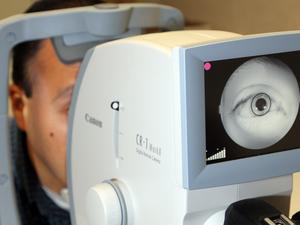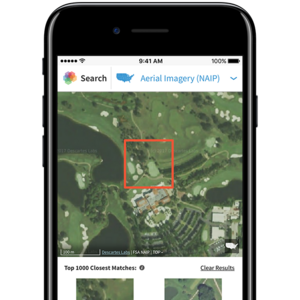
Albuquerque biotechnology startup VisionQuest Biomedical Inc. last month received an award of nearly $1 million to help commercialize new artificial intelligence technology designed to diagnose an eye condition caused by malaria.
The company develops artificial intelligence-based imaging technologies meant to help identify health conditions. It offers products for detecting diabetic retinopathy and diabetic peripheral neuropathy. Another of its products, called ASPIRE, is used to detect malarial retinopathy, abnormalities in a person's retina that are a complication of malaria.
That technology has received nearly $2 million from the National Institutes of Health to develop and commercialize the technology since September, coming in the form of two awards, according to the federal health agency.
The company will use money from the NIH for securing regulatory clearances and marketing the ASPIRE software, which is being tested at malaria clinics in Malawi, Zambia, and Kenya, according to a VisionQuest release. The money will also enable the company to expand the use of the technology in Uganda, Rwanda, Nigeria and Ghana. The counties will "be the springboard to access all malaria-affected countries in Africa," VisionQuest's release says.
Sub-Saharan Africa accounts for most of the world's malaria cases and deaths, per the World Health Organization.
VisionQuest expects to have a product ready for market by the end of next year with sales starting in early 2023. The device will be available to certain hospitals, primary care clinics and community healthcare facilities. The ASPIRE technology works to deliver a diagnosis by analyzing an image of the retina captured with a smartphone, according to the company.
The startup previously received 510(k) clearance from the U.S. Food and Drug Administration for the technology that powers the ASPIRE and EyeStar product, used to screen for diabetic retinopathy, Business First reported in January. At the time, founder and CEO Simon Barriga said the company was raising money for clinical studies. Barriga was unable to be reached for comment.
Last year, the company announced that it, along with the University of New Mexico, received an NIH grant for clinical validation of technology designed to detect early signs of diabetic peripheral neuropathy.
VisionQuest is one of several tech companies headquartered in Albuquerque using artificial intelligence, and not the only one working in health care.
Versatile MED Analytics, led by cofounders Angelica Bruhnke and Stefany Goradia, worked with RS21 to develop a platform using AI and machine learning to identify trends in health care data. Executives said the tool could be used for helping health systems find opportunities to improve the care they provide and their finances, Business First reported.
In February, Bruhnke and Goradia joined RS21 as the Albuquerque company acquired Versatile MED Analytics to create a health lab division.









